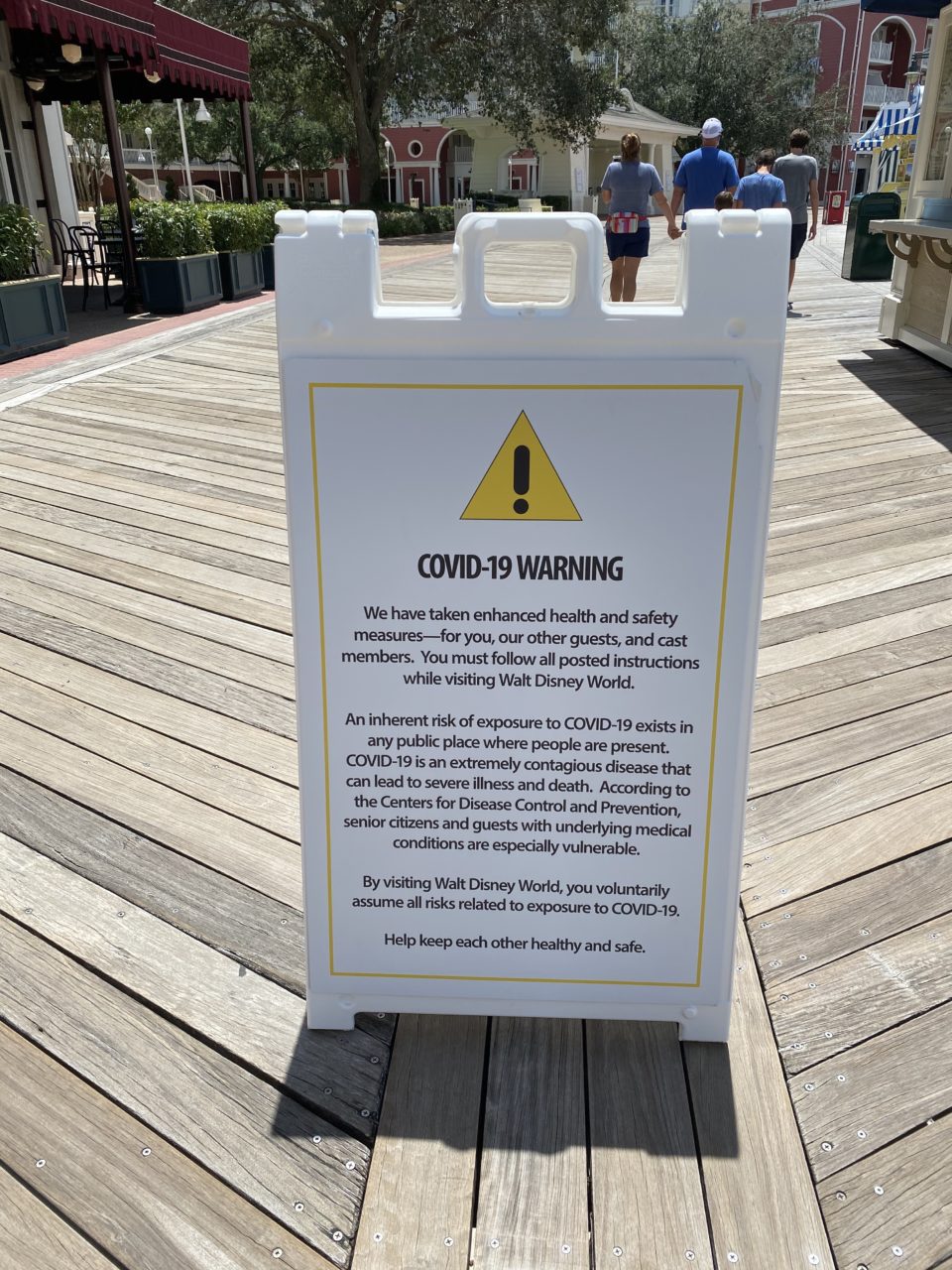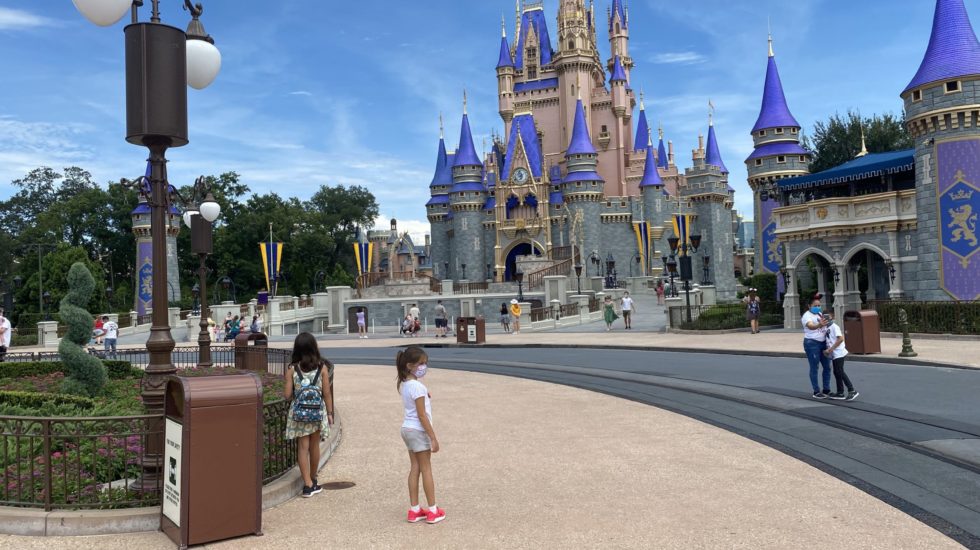The reopening of Walt Disney World in Orlando, on July 11th, was heavily criticized because it came at a time when Florida’s coronavirus cases were skyrocketing. There is no arguing the timing was off. Based on perception alone, it was hard to see how people would return to a theme park with so many people sick and dying in Florida. A month later, however, it’s interesting to look at what Disney has done and how, in many ways, the company can provide a road map for others to safely get back to business. Kent Donahue, the Public Information Officer for the Florida Department of Health in Orange County, told us “Our epidemiology program is in communication with the local theme parks. To date, based on the data, the Florida Department of Health in Orange County has not been notified of any outbreaks of the COVID-19 virus associated with the reopening of the local theme parks.”
With this in mind, we traveled to the Disney parks this past week to see for ourselves the procedures that are in place.
Walking into the Magic Kingdom at 9 a.m. on Tuesday, August 11th was surreal. My family has been to this park numerous times, always fighting crowds at what they refer to as “rope drop” in the park. That’s when people rush to the park’s most popular rides in an almost stampede-like fashion. But this time, there were few lines and no crowds. Without international visitors and with a fraction of the normal air travel to Orlando, we found most of the people visiting were annual pass holders and/or Floridians (or at least people who drove in). Disney says they also put into place a “significant reduction in capacity,” though they won’t say what that capacity is. Speculation is that there is around 10-30% of normal attendance on any given day. The Disney Tourist Blog says, “The parks are still ghost towns, with some weekends being maybe 2/10 in terms of crowds. Most weekdays are not even 1/10. The last two hours of the day, are particularly light.” The light crowds are important, as are the temperature checks and social distancing, but one of the things that really resonates is the mask policy. Disney is requiring everyone, with no exceptions, over the age of 2 to wear “an appropriate face covering.” And it’s not just any face covering, the masks must follow the following guidelines:
- Be made with at least 2 layers of breathable material
- Fully cover the nose and mouth and secure under the chin
- Fit snugly but comfortably against the side of the face
- Be secured with ties or ear loops and allow the Guest to remain hands-free
The parks are not allowing “neck gaiters, open-chin triangle bandanas and face coverings containing valves, mesh material or holes of any kind are not acceptable face coverings.”
The only time you can remove your face covering is when you are sitting or standing off to the side eating, and stationary. In addition, guests are never on a ride near anyone else, rows are skipped, hand sanitizer is available before and after rides (as well as almost everywhere else in the park) and rides are cleaned often. It does seem like the park is doing things to the best of its ability.

While we realize traveling to Disney isn’t for most people right now and that’s completely understandable, we also recognize that their mask policy could be a model for others around the country. If everyone followed their face-covering policy, which we observed to be in almost 100% compliance at the theme parks, perhaps the country would be in a different place right now. From CNBC: Theo Vos, professor of health metrics sciences at the University of Washington’s Institute for Health Metrics and Evaluation (IHME) says, “If 95% of people now start wearing masks anytime they’re in public, according to the model. Universal mask usage could prevent nearly 45,500 projected Covid-19-related deaths by Nov. 1, or about a 58% reduction.”
In the Tampa Bay Times this week, Kelly A. Stefani, a longtime Disney pass holder wrote: “To my surprise, Walt Disney World’s mask requirements, crowd restrictions and sanitizing procedures made me feel safer than going to a grocery store.“
Strangely enough, some people say what is keeping them away from Disney is the strict mask policy. An anonymous worker told Slate:
People will come up to me and say, “Oh, my gosh, the lines are so short! It’s awesome! I’ve been on this ride six times today.” When I hear from guests, and especially when I hear people complain about how “you can’t do this now,” or “you can’t do that now,” there’s one thought that always runs through my head: “Well, you’re here by choice, and I’m here by necessity. You had a choice to come, and I did not.” But if they’re going to come and follow the safety guidelines, I’m grateful to have a job. I love what I do. But once people start to complain about the safety measures that have been taken to not only protect them but also us, that’s when I get frustrated.
A video went viral on TikTok this week showing a dad complaining that his daughter has special needs and therefore shouldn’t have to wear a mask at Disney. It appeared he was turned away. The question is, if you feel uneasy about traveling to Disney now due to concerns of any kind, why travel there? No doubt, it’s safer to stay home, socially distancing from others. That said perhaps there is something to learn here about safety guidelines, particularly where masks are concerned. The mandatory mask rule is one that governors of certain states could implement or maybe even the president of the United States.

This was written by News & Guts writer Cindi Avila



